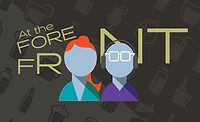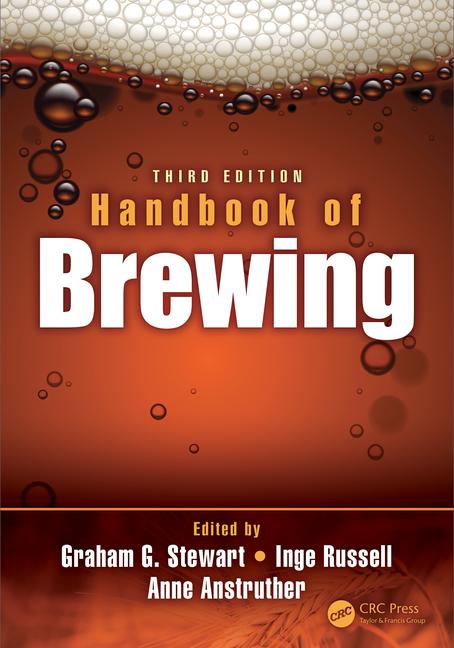Howard Schultz to step down as executive chairman of Starbucks
Schultz bids farewell after 40 years of leadership

Starbucks Coffee Co., Seattle, Wash., announced that their iconic leader and visionary entrepreneur Howard Schultz is stepping down from his role as executive chairman and member of the Board of Directors, effective June 26. He will be honored with the title of chairman emeritus, the company said in a statement. The company will continue to be led by Kevin Johnson, chief executive officer (CEO) and member of the Board of Directors, it added.
Starbucks has appointed Myron “Mike” E. Ullman, former chairman and CEO of J.C. Penny, as chair of the Board of Director and Mellody Hobson, president and director of the Chicago-based investment management firm Ariel Investments, as vice chair, the company said. The board is comprised of accomplished leaders representing diversity and excellence in global technology, retail, consumer experience and other relevant skill sets, the company said.
During Schultz’s four decades as CEO and chairman, Starbucks grew from 11 stores to more than 28,000 stores in 77 countries, while demonstrating that a business can simultaneously deliver best-in-class financial performance and share success with its people and the communities it serves, the company said.
Under Schultz’s leadership, Starbucks has delivered a 21,000 percent gain in the value of its stock price since its initial public offering in 1992. The company’s growth was fueled by Schultz’s decisions to provide uncommon benefits for those who work for Starbucks, including comprehensive healthcare, stock ownership and free college tuition, even for those working part-time.
“I set out to build a company that my father, a blue-collar worker and World War II veteran, never had a chance to work for,” Schultz wrote in a letter to past and present Starbucks partners. “Together we’ve done that, and so much more, by balancing profitability and social conscience, compassion and rigor, and love and responsibility.”
Schultz’s journey began in 1981, when he walked into the first Starbucks store, located in Seattle’s iconic Pike Place Market. The following year, he moved with his wife, Sheri, from New York to assume the role of director of operations and marketing. Schultz’s passion for the highest quality coffee heightened on a business trip to Italy, where he was captivated by the sense of community, romance and theater found in Italian coffee bars, the company said. In the years following his return to Seattle, Schultz purchased Starbucks with the support of local investors and dedicated his career to bringing his vision of a modern coffee house to life in America and around the world.
Schultz elevated the concept of Starbucks as the third place between home and work: a comfortable, welcoming environment that provides uplifting experiences, community and human connection.
Among his many accolades, Schultz was named as one of The World's Most Influential People by Time magazine as well as Business Person of the Year by Fortune. Most recently, Schultz has received the Robert F. Kennedy Ripple of Hope Award and has been presented with the Atlantic Council’s Distinguished Business Leadership award and the NAACP LDF (Legal Defense and Education Fund) National Equal Justice award, the company said.
This year, Starbucks was named the fifth most admired company in the world by Fortune, marking the 16th year in a row that the company has appeared on the global list. Starbucks was also named one of the World’s Most Ethical Companies by the Ethisphere Institute for the 12th consecutive year and was ranked as one of 2018’s Most Innovative Companies by Fast Company, most notably for its social-impact work.
The coffee chain's image also took a hit recently after two black men were arrested in one of its cafés in Philadelphia after asking to use the restroom. The company responded swiftly, and closed to provide anti-bias training to 175,000 employees.
A proponent of Starbucks as a "third place," a space for the community to gather, Schultz said after the incident, “We will learn from our mistakes and reaffirm our commitment to creating a safe and welcoming environment for every customer.”
On April 3, 2017, Schultz transitioned from CEO to executive chairman, shifting his full-time focus to the company’s social impact initiatives as well as innovation and global development of the company’s premium Reserve brand, including Starbucks Reserve Roasteries, Reserve stores and the company’s partnership with renowned artisanal Italian bakery, Princi. Following his transition off the Starbucks board at the end of June, Schultz will oversee the opening of the Starbucks Reserve Roastery in Milan on Sept. 6 — marking the company’s long-awaited entry into Italy — and the New York Roastery in late October.
Kevin Johnson, Starbucks CEO , said in a statement: “There are no words to fully express our gratitude to Howard for the extraordinary company he has built. He’s helped Starbucks earn the respect of millions around the world by always being true to a higher calling, and always being bold in creating a better future. He’s taught all of us that it’s possible to be a very different kind of public company. That must, and will, continue on my watch.”
In Schultz’s letter to partners, he thanked them for their collective efforts to build a different kind of company. “Because of your creativity, your hard work, and the love that you have poured into the company, Starbucks today is widely embraced and respected. As I prepare to step away, I’d like to humbly remind you not to lose sight of what matters most: your fellow partners and our customers.”
Schulz also expressed deep confidence in the team that will continue to lead the company. “Kevin Johnson is a true servant leader, and he will lead Starbucks as this great company enters its next journey,” Schultz said. “It’s our duty as leaders to constantly reimagine Starbucks. I am honored to call Kevin my friend and partner. And Starbucks is fortunate to have him. This leadership team is extraordinarily capable. They, too, believe that Starbucks has a responsibility to use our scale for good.”
Schultz plans to write a book about Starbucks social impact work and the efforts to redefine the role and responsibility of a public company in an ever-changing society, the company said. Schultz's latest leadership transition also has sparked speculation about his potential political plans: He has been a supporter of former President Barack Obama and Hillary Clinton during her bid for president. Some have already questioned whether he would pursue his own presidential run.
"I'll be thinking about a range of options for myself, from philanthropy to public service, but I'm a long way from knowing what the future holds," Schultz said in the memo.
To the more than 330,000 partners who wear the green apron today, and the millions before them, Schultz will forever represent Starbucks mission to inspire and nurture the human spirit one person, one cup and one neighborhood at a time, the company said.
Looking for a reprint of this article?
From high-res PDFs to custom plaques, order your copy today!






